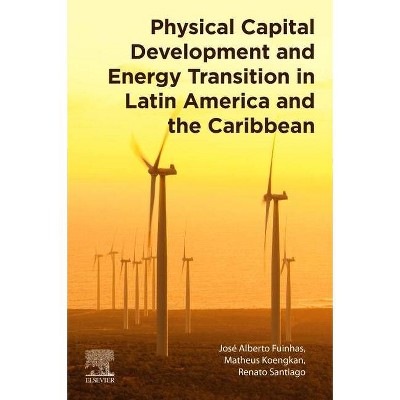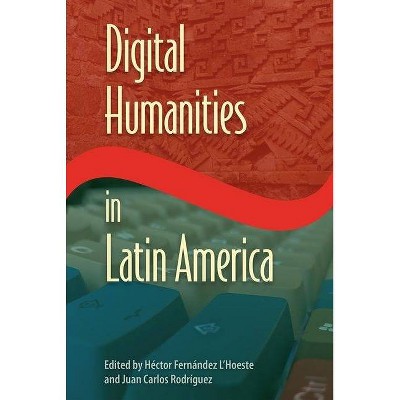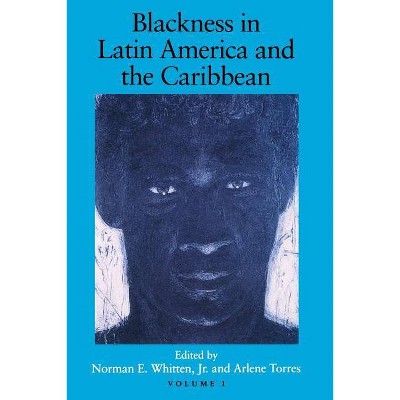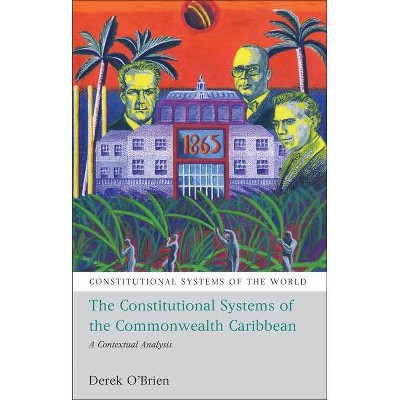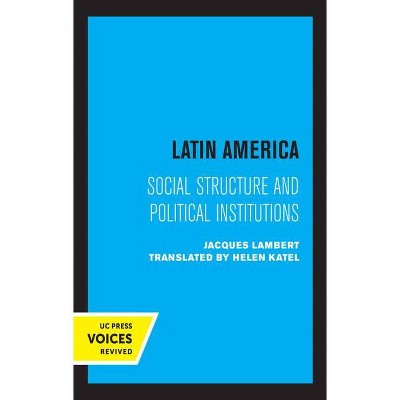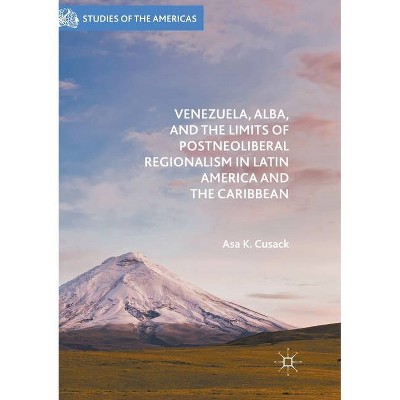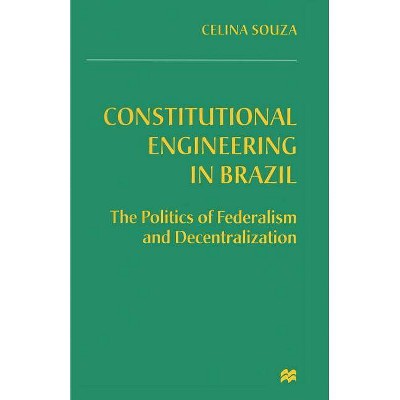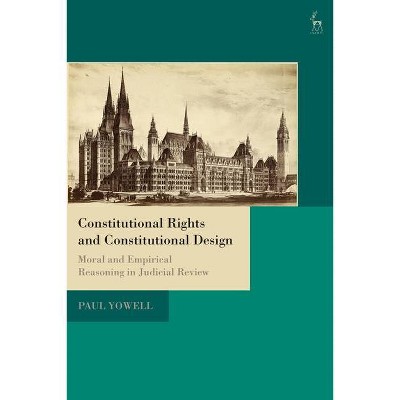Constitutional Erosion in Brazil - (Constitutionalism in Latin America and the Caribbean) by Emilio Peluso Neder Meyer (Hardcover)
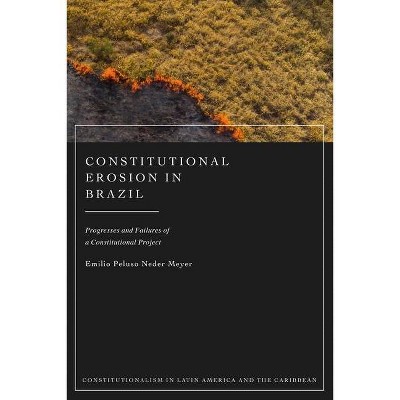
Similar Products
Products of same category from the store
AllProduct info
<p/><br></br><p><b> About the Book </b></p></br></br>"This book provides a fascinating analysis of a single jurisdiction, Brazil, and accounts for both the successes and the failures of its most recent constitutional project, inaugurated by the Constitution of 1988. It sets out the following aspects of the constitutional development and erosion: - the different phases of the promised transition from military rule to a 'social-democratic constitutionalism'; - the obstacles to democratisation derived from the absence of true institutional reforms in the judicial branch and in the civil-military relationship; - the legal and social practices which maintained a structure that obstructed the emergence of an effective social-democracy, such as the neoliberal pattern, the acceptance in the political field of unlawful organisations, such as the milâicias, and the way the digital revolution has been harming the formation of democratic sovereignty. Situating Brazil in the global context of the revival of authoritarianism, it details the factors which are common to the third wave of democratisation reflux. Accounting for those aspects, particular to the Brazilian jurisdiction, it shows that there is a tension in the Brazilian constitution. On the one hand, such constitutionalism was renewed by democratic pressure on governments to undertake social politics since 1988. On the other hand, it retained authoritarian practices through the hands of diverse institutions and political actors. By exploring the ideas of constitutional erosion and collapse, as well as democratic, social and digital constitutionalism, the book presents a comparative analysis of Brazil and other jurisdictions, including the United States, South Africa, and Peru"--<p/><br></br><p><b> Book Synopsis </b></p></br></br><p>This book provides a fascinating analysis of a single jurisdiction, Brazil, and accounts for both the successes and the failures of its most recent constitutional project, inaugurated by the Constitution of 1988. <p/>It sets out the following aspects of the constitutional development and erosion: <br>- the different phases of the promised transition from military rule to a 'social-democratic constitutionalism'; <br>- the obstacles to democratisation derived from the absence of true institutional reforms in the judicial branch and in the civil-military relationship; <br>- the legal and social practices which maintained a structure that obstructed the emergence of an effective social-democracy, such as the neoliberal pattern, the acceptance in the political field of unlawful organisations, such as the milícias, and the way the digital revolution has been harming the formation of democratic sovereignty. <p/>Situating Brazil in the global context of the revival of authoritarianism, it details the factors which are common to the third wave of democratisation reflux. Accounting for those aspects, particular to the Brazilian jurisdiction, it shows that there is a tension in the Brazilian constitution. <p/>On the one hand, such constitutionalism was renewed by democratic pressure on governments to undertake social politics since 1988. On the other hand, it retained authoritarian practices through the hands of diverse institutions and political actors. <p/>By exploring the ideas of constitutional erosion and collapse, as well as democratic, social and digital constitutionalism, the book presents a comparative analysis of Brazil and other jurisdictions, including the United States, South Africa, and Peru.</p><p/><br></br><p><b> Review Quotes </b></p></br></br><br><p>"A comprehensive, in-depth account and analysis of the dramatic erosion of constitutional democracy in Brazil - required reading not just for anyone interested in Brazil, but for anyone interested in the spread of illiberal, authoritarian populism across South America and around the world today. Emilio Peluso Neder Meyer identifies brilliantly the causes and manifestations of constitutional crisis presided over by Bolsonaro's government, and traces them, among other things, to tensions between the democratic and authoritarian ingredients of the Brazilian Constitution." --<i>Wojciech Sadurski, Challis Professor of Jurisprudence, University of Sydney, Australia</i> <p/>"It is a significant contribution to comparative constitutional studies: not only does it introduce and exhaustively explore the concept of constitutional erosion, but also brings to the international audience one of the best analyses of how courts and the military may contribute to such a phenomenon. Emilio Meyer's impressive capacity of connecting comparative studies and examples to Brazil's fascinating - and sometimes surreal - constitutionalism is to be celebrated, but even more so is his belief in the strength and resilience of Brazilian constitutionalism to combat those who have the power to erode it. This is a must-read book!" --<i>Juliano Zaiden Benvindo, Associate Professor of Constitutional Law, University of Brasilia, Brazil</i></p><br><p/><br></br><p><b> About the Author </b></p></br></br><b>Emilio Peluso Neder Meyer </b>is a Constitutional Law Professor at the Federal University of Minas Gerais, Brazil, and the Director of the Study Center on Transitional Justice.
Price History
Cheapest price in the interval: 88.99 on October 27, 2021
Most expensive price in the interval: 88.99 on December 20, 2021
Price Archive shows prices from various stores, lets you see history and find the cheapest. There is no actual sale on the website. For all support, inquiry and suggestion messagescommunication@pricearchive.us
